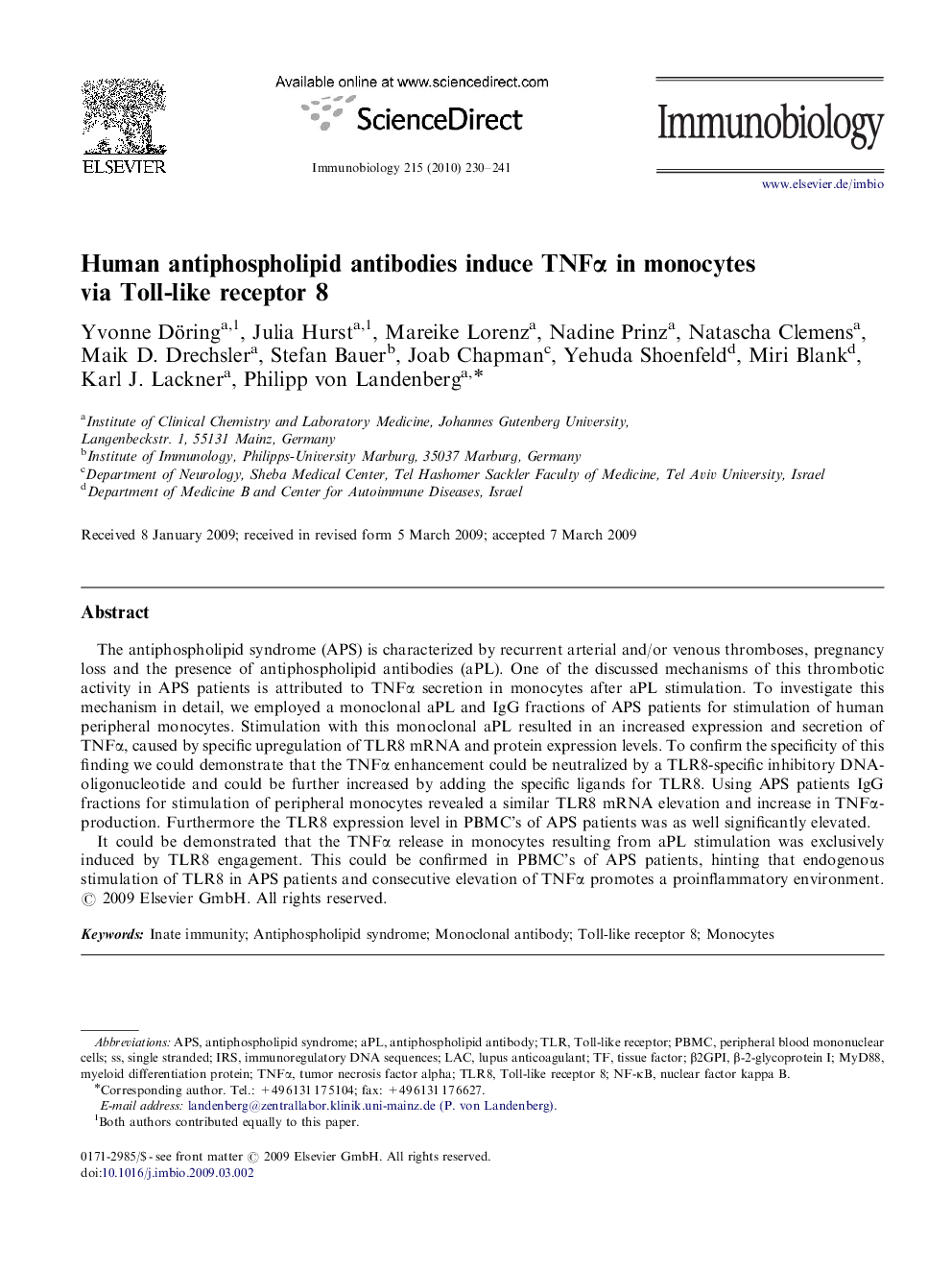| Article ID | Journal | Published Year | Pages | File Type |
|---|---|---|---|---|
| 2183436 | Immunobiology | 2010 | 12 Pages |
The antiphospholipid syndrome (APS) is characterized by recurrent arterial and/or venous thromboses, pregnancy loss and the presence of antiphospholipid antibodies (aPL). One of the discussed mechanisms of this thrombotic activity in APS patients is attributed to TNFα secretion in monocytes after aPL stimulation. To investigate this mechanism in detail, we employed a monoclonal aPL and IgG fractions of APS patients for stimulation of human peripheral monocytes. Stimulation with this monoclonal aPL resulted in an increased expression and secretion of TNFα, caused by specific upregulation of TLR8 mRNA and protein expression levels. To confirm the specificity of this finding we could demonstrate that the TNFα enhancement could be neutralized by a TLR8-specific inhibitory DNA-oligonucleotide and could be further increased by adding the specific ligands for TLR8. Using APS patients IgG fractions for stimulation of peripheral monocytes revealed a similar TLR8 mRNA elevation and increase in TNFα-production. Furthermore the TLR8 expression level in PBMC's of APS patients was as well significantly elevated.It could be demonstrated that the TNFα release in monocytes resulting from aPL stimulation was exclusively induced by TLR8 engagement. This could be confirmed in PBMC's of APS patients, hinting that endogenous stimulation of TLR8 in APS patients and consecutive elevation of TNFα promotes a proinflammatory environment.
